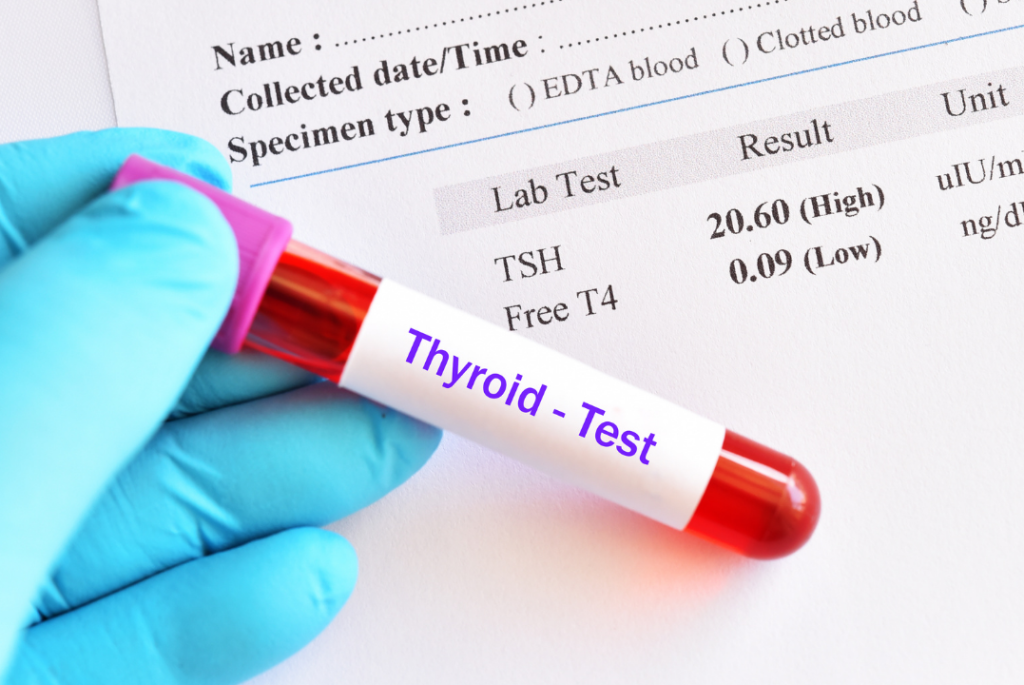Women's Health, Nourish Health Food Pharmacy
Common Signs That Your Thyroid Isn’t Functioning Properly
International Thyroid Awareness Day is held on 25th May every year, so it was only fitting that we dedicated an entire blog post to thyroid health. You may be shocked to learn that it is predicted over 1 million Australians are living with an undiagnosed thyroid disorder, which makes it is difficult to determine how many people suffer with these conditions.
It is known though, that thyroid disorders affect 10 times more women than men, and that age is a large risk factor, with women over 40 at much greater risk of thyroid disorders than any other demographic. So what does the thyroid actually do in the body? And what are the signs to look out for? Keep reading to find out.
What is the thyroid?
The thyroid is a butterfly shaped gland located at the base of the throat, and is a major part of a network of glands called the endocrine system. The combination of all the glands in the endocrine system are responsible for the hormone messages that are sent throughout the body.
The thyroid gland in particular is responsible for producing hormones that regulate energy, growth, metabolism, bowel function, heart rate and body temperature. However, when the thyroid gland isn’t functioning optimally, a variety of symptoms may be present. It is important to note though, that thyroid disorders can sometimes be difficult to diagnose as many symptoms can be easily confused with other conditions.
You may have already heard of the two most common thyroid disorders, or even know somebody that has been diagnosed with one of them. These are hypothyroidism and hyperthyroidism. This next section will explain the different between the two, and the symptoms that may be experienced if you have one of these disorders.

Hypothyroidism
Hypothyroidism, also known as an underactive thyroid, occurs when the thyroid produces inadequate amounts of thyroid hormone, causing metabolism to slow and can result in many symptoms listed below. The most common cause of this condition is Hashimoto’s disease, an autoimmune condition where the immune system attacks the thyroid gland and causes it to become inflamed, reducing its ability to create hormones. Another cause is iodine deficiency, as iodine is essential in the production of thyroid hormone.
What are the symptoms of Hypothyroidism (underactive thyroid)?
- Weight gain
- Body aches or joint pain
- Sensitivity to cold temperatures
- Anxiety
- Constipation
- Irregular or heavy periods
- Brain fog
- Fatigue
- Hair loss
Hyperthyroidism
Hyperthyroidism, also known as overactive thyroid, is the complete opposite to hypothyroidism, and occurs when the thyroid produces too much thyroid hormone and therefore the body’s metabolism speeds up. The most common cause of hyperthyroidism is Grave’s disease, an autoimmune condition that causes the overproduction of thyroid hormone.
What are the symptoms of Hyperthyroidism (overactive thyroid)?
- Unexplained weight loss
- Increased appetite
- Sensitivity to heat or hot flushes
- Rapid heartbeat or heart palpitations
- Restlessness
- Insomnia and fatigue
- Unexplained loose stools
How are thyroid disorders diagnosed?
The first place to start is by making an appointment to visit a trusted GP, who can then refer you on to get a simple panel of blood tests looking at all your thyroid hormone levels. This will often be enough to determine if there are any abnormalities. They may also conduct a physical exam and check your neck for any nodules. Sometimes an ultrasound, thyroid scan or radioactive iodine uptake test may be required.

What happens if thyroid disorders are left untreated?
Over time, both hypo- and hyperthyroidism can cause a number of health complications if left untreated, such as infertility, depression and heart disease. If you feel like something isn’t quite right, make sure you visit your GP. Fortunately, thyroid disorders are generally a very treatable condition with the right medication and lifestyle changes. Often, working with a natural health practitioner such as a Nutritionist, can be extremely beneficial to help you navigate through a diagnosis and give you the dietary and lifestyle tools that are required. There are many herbal remedies or dietary alterations that can be trialled to maintain healthy thyroid function, however this needs to be done under the guidance of a health professional.
In summary
Thyroid disorders are extremely common all over the world, but are more common in women, particularly those over 40. Many of the signs and symptoms of hypo- or hyperthyroidism can also be symptoms of other health conditions, so make sure that if you experience any symptoms that aren’t normal for you, get them checked out. Generally, thyroid disorders are treatable with the right medications and guidance.



